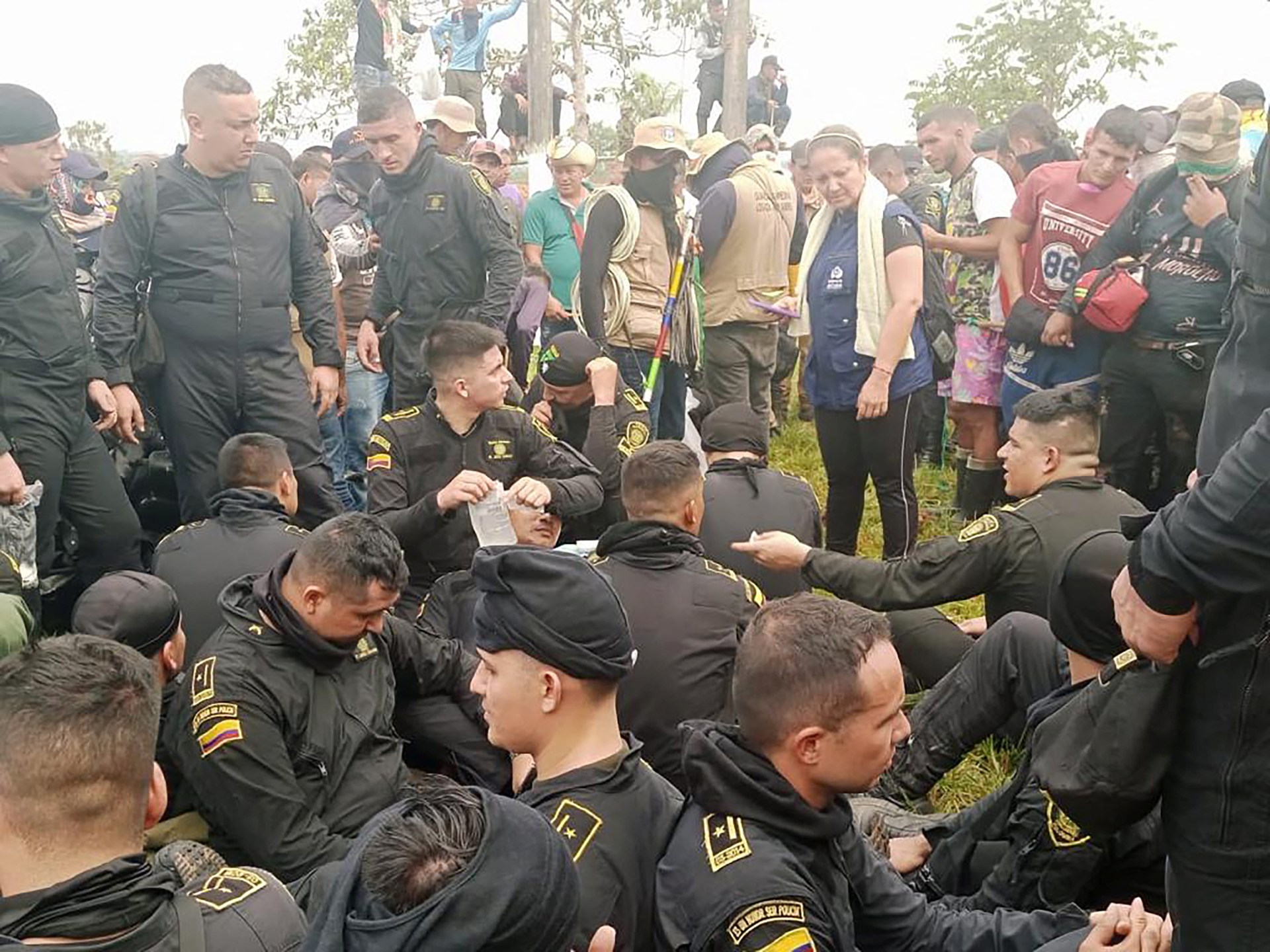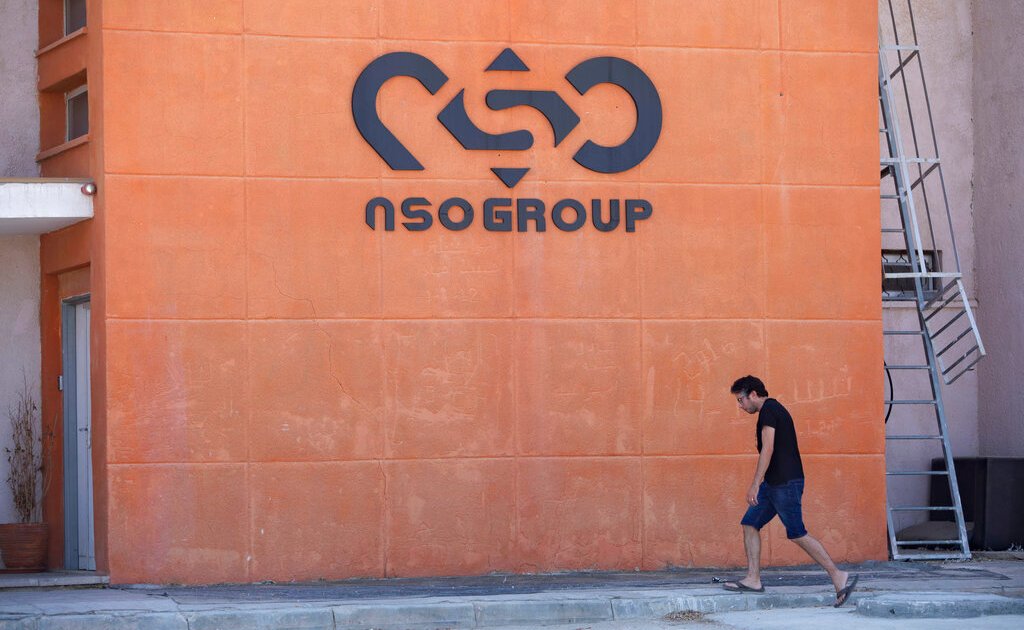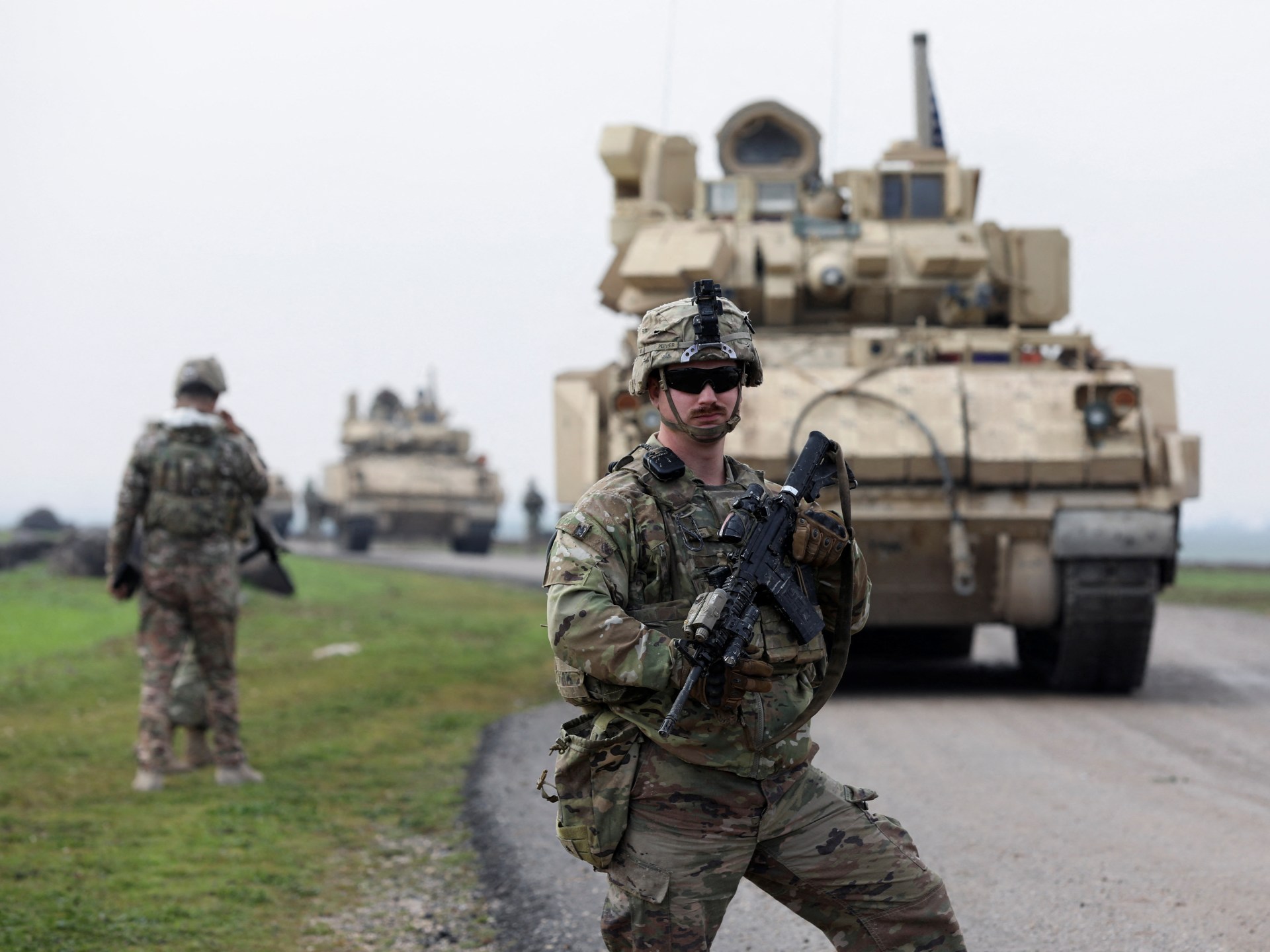Protesters in Colombia clash with oil company and take hostages
A civilian and police officer have died in violent demonstrations calling for Emerald Energy to invest in rural communities.
Caracas, Venezuela – Colombia’s Defence Minister Ivan Velasquez and the commander of its armed forces, Helder Giraldo, have landed in Caqueta province to seek the release of dozens of police officers and oilfield workers taken hostage during deadly protests.
At least 79 police officers and nine oilfield workers have been held since Tuesday, as protesters demand that the oil company Emerald Energy invest in surrounding rural communities.
An officer and civilian died in confrontations between riot police and protesters on Thursday, as demonstrators took control of the oil company’s offices. Police sources indicate that the civilian was shot to death, while the officer suffered a stab wound.
“The homicide of Subintendant Ricardo Arley Monroy, who was mercilessly killed when he was defenceless in the power of his captors, deserves general repudiation,” Velasquez tweeted late on Thursday, referring to the police officer killed. “Nothing, nothing justifies this act.”
Other cabinet ministers are expected to join Velasquez and Giraldo on Friday in San Vicente del Caguan, a town in southern Colombia where much of the violence is centred. They include Minister of the Interior Alfonso Prada and Minister of Transportation Guillermo Reyes.
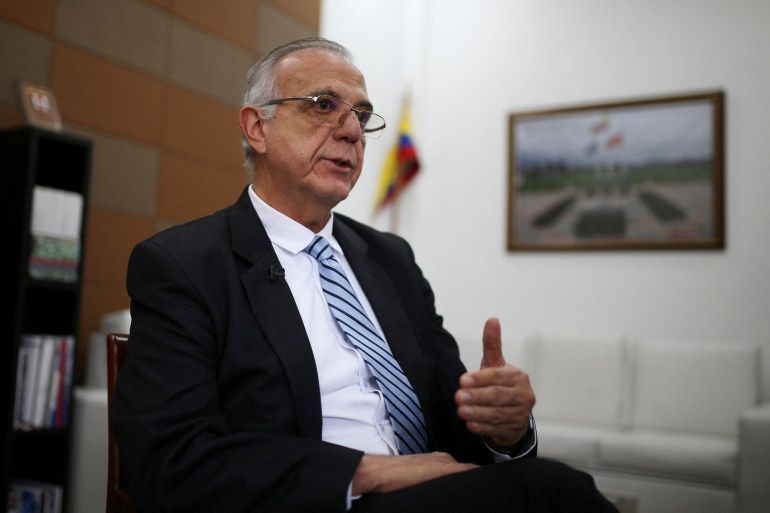
On Friday, the office of Colombia’s president, Gustavo Petro, announced that six oilfield workers remained in the protesters’ custody, down from the nine reported earlier in the week. There was no update on the number of police officers held, however.
“It’s important that farmers free the police that they have in their custody,” Velasquez tweeted.
Petro echoed calls for the hostages’ release. “I insist on the unilateral release of the police officers,” he posted on Twitter. “The protection of their integrity is essential for the government.”
Twenty-two protesters have also been injured, according to a local farming association involved in the demonstrations.
Police told the news agency Reuters that dissidents from the Revolutionary Armed Forces of Colombia (FARC), a disbanded rebel group, could be involved in the violence. In 2016, the FARC signed a peace deal that some members rejected, in favour of continued armed action.
But Alexander Ospina, a spokesperson for the communities involved in the protests, told Al Jazeera he had seen no indication of involvement from FARC dissidents. He said such rumours seemed intended to delegitimise the rural communities’ fight.
Protesters have called for Emerald Energy to help fix roads and invest in local institutions, including schools. As part of the unrest, members of local communities have blocked access to one of the company’s oilfields.
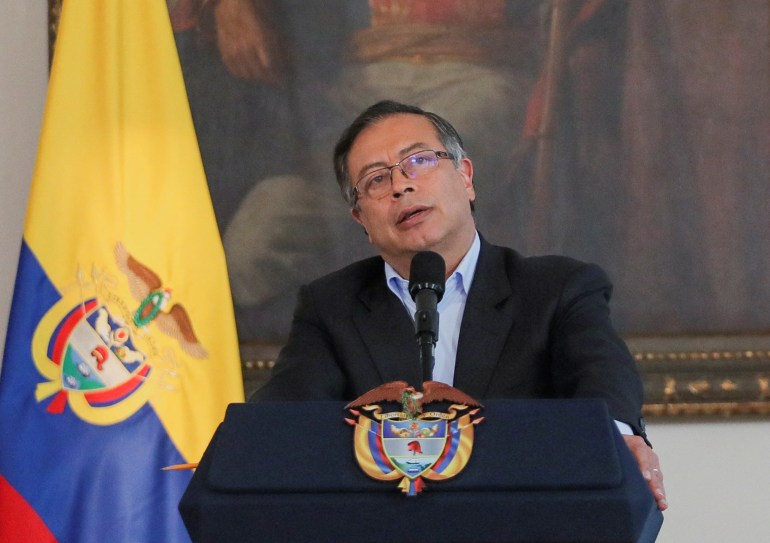
Ospina said demonstrators are waiting for the arrival of government officials to begin talks. They hope to reach a deal with the government over what they consider Emerald Energy’s obligation to build infrastructure for local communities and provide compensation for environmental damage.
“To de-escalate the situation, we need to sign agreements with the government that correspond to our reality,” Ospina said. “If the oil companies don’t want to invest in our communities, then the government should remove the oil companies from our lands.”
But Prada, Colombia’s Interior minister, has announced that the government will only fully enter negotiations with the protesters once the hostages are freed.
“We have said that an absolutely insurmountable requirement to sit down to talk with a large body of the national government in relation to the social issues of the community is naturally the immediate release of our members of the National Police and six workers,” Prada said.
About 4,000 farmers, representing more than 150 farming and Indigenous communities, are present for the protests, Ospina said.

